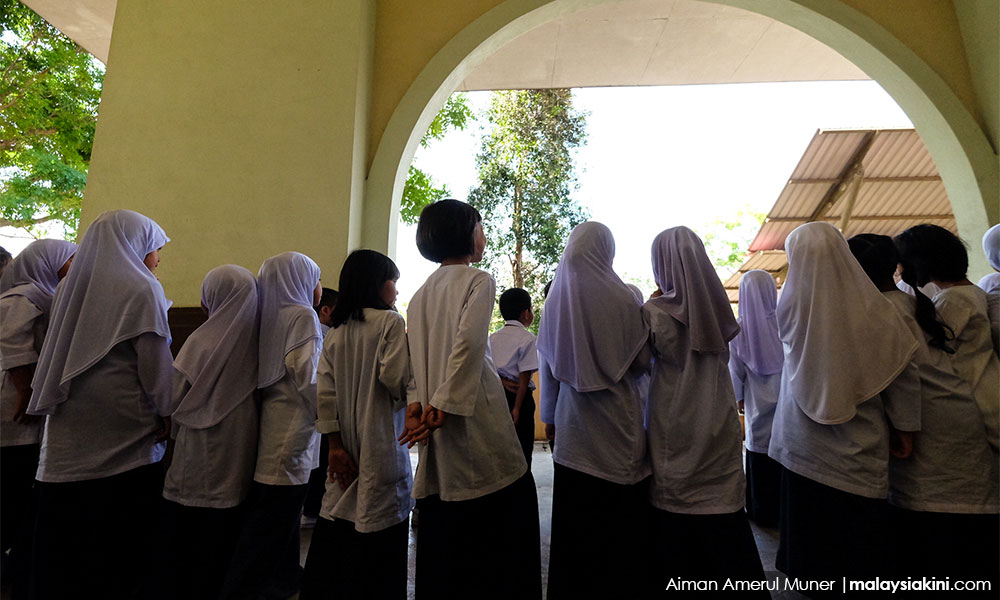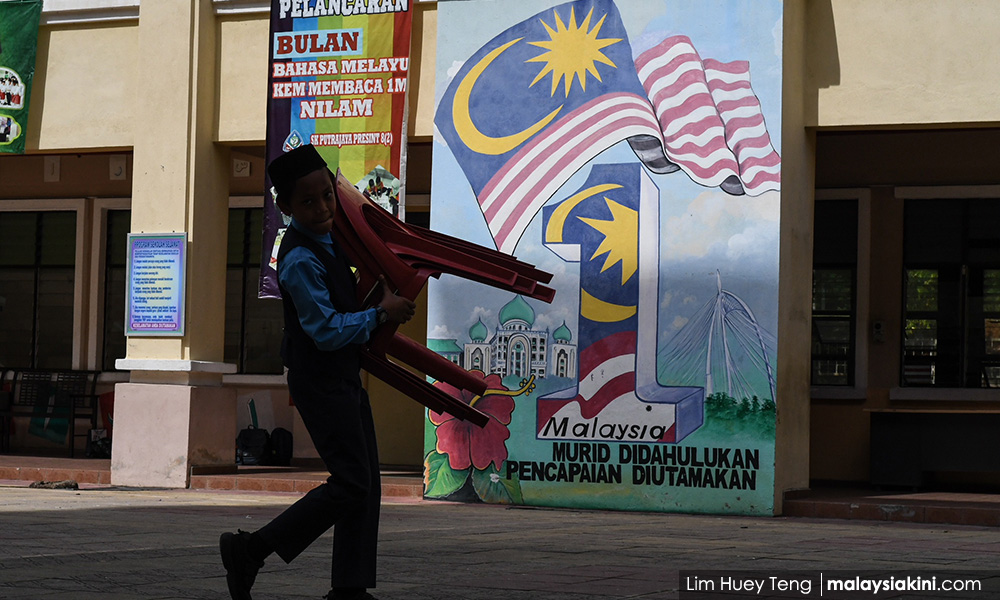
I think there is absolutely no question that the National Civics Bureau (Biro Tatanegara, BTN), as we know it, has been a deplorable hotbed of raging racism and hate mongering.
There is likely no doubt that it was used as a political tool to attempt to instil divisive ideologies meant to propagate Umno supremism.
Thus, the outcry when BTN was not on the list of agencies Prime Minister Dr Mahathir Mohamad has abolished within the PM’s Department, is eminently understandable.
Most importantly, the Pakatan Harapan GE14 manifesto clearly states that the BTN will be dissolved.
Mahathir has already once reversed a decision (on appointing himself as education mnister) when it was pointed out to him that the decision was in contradiction with the manifesto.
Perhaps we will see the same in this case, or perhaps it is not that BTN is not being abolished - merely that it has not been abolished yet.
The issues raised here bring to mind another recent comment by the prime minister on reviving the Vision School model, as well as the question of whether National Service should be continued.
These issues concern whether or not (or to what degree) Malaysians should have a shared, common experience.
Any variation of BTN for adults is unlikely to be a good idea, so let us focus instead on the idea of a shared experience for Malaysian students.
The value of a shared experience
The education landscape is certainly not as it once was. The proportion of Malaysian children attending national schools is likely to have diminished considerably over time, considering the proliferation of private and international schools, and the increasing popularity of mother tongue education.
It would thus follow that where once more Malaysian children had the similar experience of attending a national school under the national syllabus, this number is growing smaller and smaller.
The wide range of experiences a child can have was brought home to me when I found out that a nice young man in his early teens, whom I was helping to tutor in Bahasa Malaysia, did not know how to sing Negaraku, despite being a Malaysian and having grown up in Kuala Lumpur his entire life.
The international school that he attended clearly did not seem to think it was a priority.
Mahathir’s passion for the Vision School project speaks to similar concerns - that young Malaysians are increasingly growing up in silos, with less and less exposure to fellow Malaysians from different backgrounds.
The Vision School concept is a compromise, wherein the fiercely protected interests of mother tongue instruction would presumably be less threatened, while still allowing for greater integration and interaction among Malaysian youths from an early age.
In theory, BTN and National Service follow a similar concept, though needless to say, in the case of BTN this role has been completely subverted and twisted 180 degrees.
The two questions relevant here are: Firstly, is it important for young Malaysians to have a shared experience? Secondly, if so, how can we best achieve this?
I believe the first answer is ‘yes’. I feel a nation can only be helped by giving its citizens more and more opportunities and avenues to form genuine bonds across different backgrounds and communities.
Exposing the youth to a baseline experience and set of information and/or skills provides a minimum common ground for all Malaysians and a means to begin relating to one another, across the board.
Teach Bahasa Malaysia to all
Specifically, there are two things that come to mind in terms of how to make this happen.
The first is to make the study of Bahasa Malaysia compulsory for all Malaysian students.
The term ‘a common language’ is often used metaphorically; but what hope do we have to bond as a nation if we literally cannot understand the words that are coming out of each other’s mouths?

The gap that follows this lack of a common language soon becomes cultural, not just linguistic. Lacking a common language merely gives us less and less of a reason to actually communicate with one another, and widens the gaps among us.
Bilingualism is not particularly hard to achieve in children, as long as we start them early enough and follow through.
If SPM-level Bahasa Malaysia really is too difficult to require by all students at the end of their secondary education, perhaps at least PT3 (Form 3, for students aged about 15 in the national system) level would be good.
The second is a class in Malaysian history and civics. This, of course, can be more controversial, depending on the syllabus and how it is implemented. If you go the wrong way, you will end up with BN’s BTN all over again.
There is a right way though, I believe.
An accurate understanding of Malaysian history
An understanding of the basics of Malaysian history will be very helpful in shaping national identity.
Of course, we have seen how writing the syllabus for studying history can be extremely prejudicial and politically motivated.
One way around this is to allow the syllabus to be written independently by a panel of scholars, both local and international, to maintain some level of impartiality.
The history syllabus can also make a point to showcase different interpretations of single events - not only reflecting how history is studied at its highest levels, but also nurturing the development of critical thinking skills among our students.
Malaysian civics can include basic ideas of how the country and its government function - covering things like the essentials of the Federal Constitution, how our particular democracy works, the roles played by institutions that provide checks and balances, principles of transparency and accountability, and so on.
In many ways, BN’s reign of kleptocracy was aided by a level of ignorance and acceptance of corrupt practices.
In the long run, the only way to guard against a repeat of this is not by ensuring one party or another is in power, but by empowering our citizens with the knowledge and gumption they need to protect their own interests, and the interests of the nation as a whole, against those who seek to plunder for personal profit.
Future proofing Malaysia
Training and/or certification of these civics classes can perhaps be done centrally, and qualified teachers can then be sent to all schools in the country, for children aged say 16 and above.
Often times, of course, the devil is in the implementation. Similar attempts for the above, I think, were one time made compulsory for certain pre-university students, under the rubric of ‘Malaysian Studies’, but this appears to have fallen by the wayside.
First and foremost, of course, the way to avoid the disaster that BTN is to internalise and understand the fact that these courses and syllabi are not, and should never, be a political tool.
The same goes for programmes like National Service. Firstly, if they cannot be run without comprehensively guaranteeing the health and safety of its participants (who can forget the senseless deaths of children at National Service camps), then it must be done away with completely.
However, with better organisation, such camps can serve as a healthy avenue for Malaysians from vastly disparate backgrounds and communities to interact and learn from one another.
Perhaps, instead of only being military in nature, these camps can also focus on community service - at once providing necessary services for the greater good, and instilling some first-hand appreciation of civic responsibility.
With all these programmes and courses, the end result required is emphatically not to keep one party or another in power, but to ensure that Malaysians understand our democracy and their rights and responsibilities within it, regardless of who is in power.
This, by far, is the best way to future-proof our new Malaysia, come what may.
NATHANIEL TAN is eager to serve, and would love to help write such a syllabus. -Mkini



No comments:
Post a Comment
Note: Only a member of this blog may post a comment.